SUMMARY
This is AI generated summarization, which may have errors. For context, always refer to the full article.
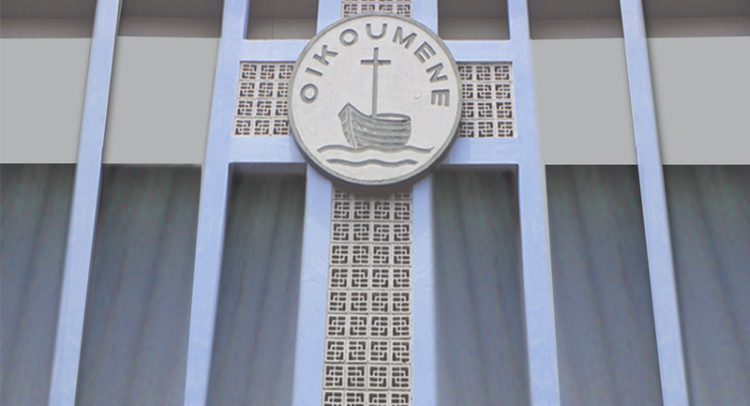
MANILA, Philippines — Recognized for its progressive standpoint and firm expressions on social justice and political issues in the country, the National Council of Churches in the Philippines (NCCP) marked its 60th year with an ecumenical service at the Cathedral of Saint Mary and Saint John along E. Rodriguez Sr. Avenue in Quezon City.
The event brought together around 400 individuals, comprised of Protestant bishops, men and women in semi-formal or business attire, veiled women, and even a bishop representing the Roman Catholic Church, all in the 61-year-old Anglican cathedral on a Wednesday morning.
This gathering not only symbolized the organization’s longstanding commitment to progressive stances on social and political matters but also highlighted its ability to foster unity among diverse voices in the pursuit of justice and inclusivity.
What is NCCP, and what drives it to be outspoken in advocating its progressive stance on social and political issues in the country?
History of NCCP
Founded in 1963, the NCCP is the largest alliance of mainline Protestant and non-Roman Catholic churches in the Philippines. Its predecessors include the Missionary Alliance in 1900, the Evangelical Union in 1901, the National Christian Council in 1929, the Philippine Federation of Evangelical Churches in 1939, and the Philippine Federation of Christian Churches in 1949.
The NCCP is structured into ten regional ecumenical councils: Cordillera, Cagayan Valley, Pangasinan-Ilocos-La Union-Abra, Romblon-Mindoro, Palawan, Western Visayas, Eastern Visayas, Cotabato, Misamis Oriental-Camiguin-Butuan-Lanao, and Basilan-Zamboanga-Misamis Occidental Regional Ecumenical Council.
Presently, the NCCP consists of ten Protestant and non-Roman Catholic denominations, along with nine service-oriented organizations in the Philippines. They are:
- Apostolic Catholic Church (ACC) – Independent Catholic
- Convention of Philippine Baptist Churches (CPBC) – Baptist
- Episcopal Church in the Philippines (ECP) – Anglican
- Iglesia Evangelica Metodista en las Islas Filipinas (IEMELIF) (Evangelical Methodist Church in the Philippine Islands) – Methodist
- Iglesia Filipina Independiente (IFI) (Philippine Independent Church) – Independent Catholic, Anglo-Catholic
- Iglesia Unida Ekyumenikal (IUE) (United Ecumenical Church) – United Church
- Lutheran Church in the Philippines (LCP) – Lutheran
- The Salvation Army Philippine Territory (TSA) – Holiness movement
- United Church of Christ in the Philippines (UCCP) – United Church
- The Philippines Central Conference of the United Methodist Church (UMC) – Methodist
Associated organization members:
- Association of Christian Schools, Colleges and Universities (ACSCU)
- Consortium of Christian Organizations for Rurban Development (CONCORD)
- Ecumenical Church Loan Foundation, Inc. (ECLOF)
- Kaisahang Buhay Foundation (KBF)
- Manila Community Service, Inc. (MCSI)
- Lingap Pangkabataan, Inc. (LPI)
- Philippine Bible Society (PBS)
- Student Christian Movement of the Philippines (SCMP)
- Union Church of Manila (UCM)
According to their website, it is “an ecumenical fellowship of non-Roman Catholic denominations in the Philippines working for unity in faith and order.”
The NCCP entails offering churches opportunities for a shared prophetic testimony and involvement in addressing societal concerns, particularly issues related to justice and peace, human dignity and rights, and the preservation of the environment.
Its foundation and programs
The NCCP is seen as vocal in expressing its progressive stances and positions on major social issues, owing to its theological foundation.
Its theological foundation lies in the concept of the incarnation, emphasizing God’s solidarity with humanity, particularly those who undergo suffering and vulnerability, to advocate for fair and inclusive communities.
The ministry of the NCCP is organized into three distinct programs:
Ecumenical Education and Nurture – The program unit operates through four programs through Nurture and Value Formation, Capacity Building and Ecumenical Formation, Ecumenical Leadership Formation, and Advocacy, Networking and Publications
Christian Unity and Ecumenical Relations – This program unit gives NCCP a facilitator for the movement of unity in society through linking with various agencies, relations with other people, and ecumenical activities.
Faith, Witness, and Service – The main goal of this NCCP program is to develop church members into critical thinkers and responsible societal contributors, promoting NCCP values locally and internationally, and addressing the needs of the poor and marginalized for their upliftment.
All of these aim to embody its mission of fostering camaraderie, serving as a conduit for unified testimony, and being a dynamic and reputable institution for Christian solidarity, all directed toward an authentic transformation of both the church and society.
Challenges faced
Expressing its outspoken advocacy for progressive stances on social issues, the organization has faced red-tagging from external sources. In 2020, the NHCP General Secretary, Bishop Reuel Marigza, experienced red-tagging at the hands of then-Lieutenant General Antonio Parlade Jr.
“The baseless and reckless accusations are dangerous and violate people’s rights, especially in the time of a pandemic. Vilification and red-tagging violate human dignity that is bestowed by God, regardless of their beliefs and position on critical issues,” NHCP said in their statement.
During the height of former president Rodrigo Duterte’s war on drugs, the NCCP in 2016 also remained unafraid and condemned Duterte’s bloody anti-drug campaign.
“What manner is this that he who expressed disdain over Filipinos killing fellow Filipinos would now tolerate impunity? There can be no ‘shortcuts’ by abandoning the rule of law, the equal protection of the law, and the resolve to get to the bottom of the social inequality and injustice stalking the land,” the NCCP said in its statement.
The NCCP has also displayed courage in supporting Cordillera IP rights defenders, opposing charter change, and criticizing Israel for its “lopsided” conflict with Palestine. — Rappler.com
Add a comment
How does this make you feel?
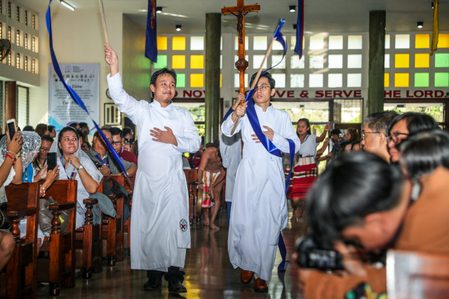
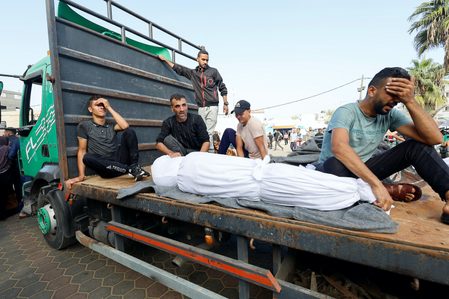
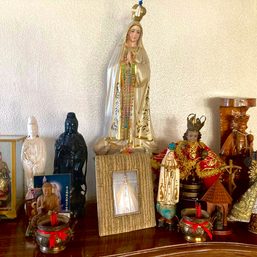
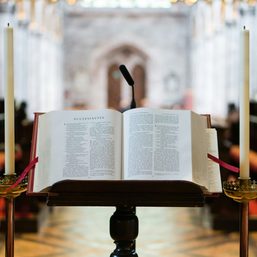

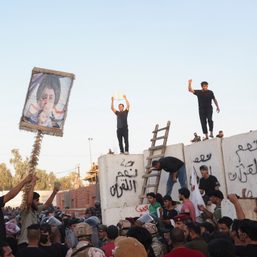
There are no comments yet. Add your comment to start the conversation.